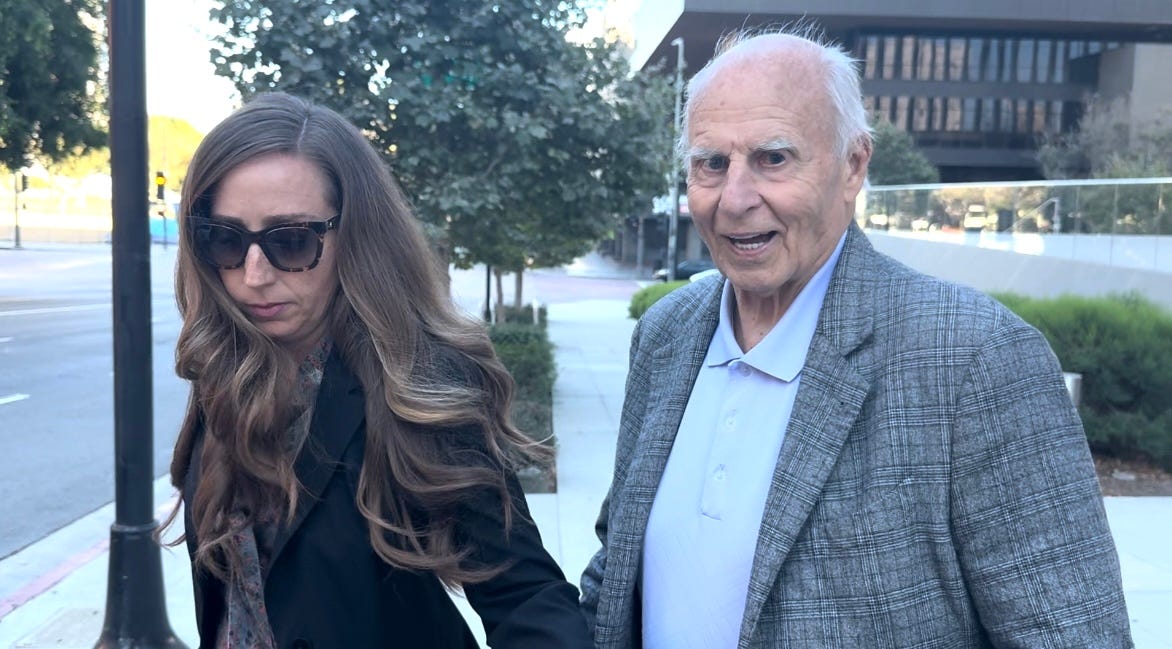Girardi's expert says she doesn't know if he could have committed fraud before 2020
The disbarred mega lawyer, described in testimony as the "godfather" of the plaintiffs' bar, is charged with four counts of wire fraud involving four client settlements.
In a video shown last week during his fraud trial, Tom Girardi sits next to Erika Jayne as she tells her friends he has a lot of young women working at his firm.
“Jurors now, they watch for things like that,” Girardi adds.
The footage was from an October 2019 episode o…



